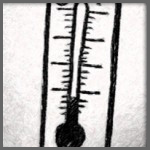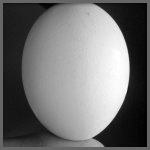False.
 Mothers and fathers routinely scold their children for doing things like going out in the cold without their hats and mittens on, for having their jackets unzipped, and especially for going outside with wet hair. Many well-meaning parents still believe that going outside or going to sleep with wet hair will increase the likelihood of catching a cold. Research going back to the 1950’s has shown that just is not the case. Studies in which participants were exposed to cold viruses or even had viruses put in their nose, and then where placed in chilled or wet environments didn’t come down with more colds than participants who were exposed to viruses in the same manner but were kept in warm or normal environments. In an article titled “Acute cooling of the body surface and the common cold” published in the journal Rhinology, R. Eccles writes, “There is a widely held belief that acute viral respiratory infections are the result of a chill and that the onset of a respiratory infection such as the common cold is often associated with acute cooling of the body surface, especially as the result of wet clothes and hair. However, experiments involving inoculation of common cold viruses into the nose, and periods of cold exposure, have failed to demonstrate any effect of cold exposure on susceptibility to infection with common cold viruses.” Experts do agree that in order to get sick or to catch a cold, you must be exposed to a virus that causes the cold. There are roughly 200 such viruses, with rhinovirus being the culprit in the majority of cases. People often come in contact with the virus that causes a cold by breathing in viral particles after someone has sneezed or coughed or by picking up the virus from a door knob or hand rail and then touching their nose or mouth. Colds are also more common in the winter months as people tend to stay inside more and be in closer contact with one another.
Mothers and fathers routinely scold their children for doing things like going out in the cold without their hats and mittens on, for having their jackets unzipped, and especially for going outside with wet hair. Many well-meaning parents still believe that going outside or going to sleep with wet hair will increase the likelihood of catching a cold. Research going back to the 1950’s has shown that just is not the case. Studies in which participants were exposed to cold viruses or even had viruses put in their nose, and then where placed in chilled or wet environments didn’t come down with more colds than participants who were exposed to viruses in the same manner but were kept in warm or normal environments. In an article titled “Acute cooling of the body surface and the common cold” published in the journal Rhinology, R. Eccles writes, “There is a widely held belief that acute viral respiratory infections are the result of a chill and that the onset of a respiratory infection such as the common cold is often associated with acute cooling of the body surface, especially as the result of wet clothes and hair. However, experiments involving inoculation of common cold viruses into the nose, and periods of cold exposure, have failed to demonstrate any effect of cold exposure on susceptibility to infection with common cold viruses.” Experts do agree that in order to get sick or to catch a cold, you must be exposed to a virus that causes the cold. There are roughly 200 such viruses, with rhinovirus being the culprit in the majority of cases. People often come in contact with the virus that causes a cold by breathing in viral particles after someone has sneezed or coughed or by picking up the virus from a door knob or hand rail and then touching their nose or mouth. Colds are also more common in the winter months as people tend to stay inside more and be in closer contact with one another.
Reference:
Eccles R: Acute cooling of the body surface and the common cold. Rhinology (2002), Vol. 40, pps. 109-114.



